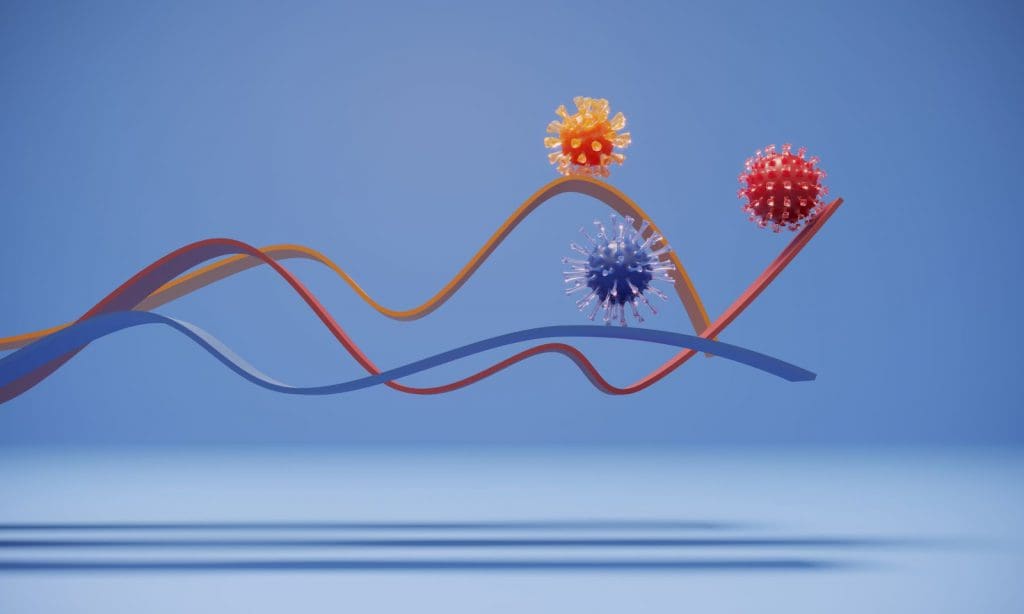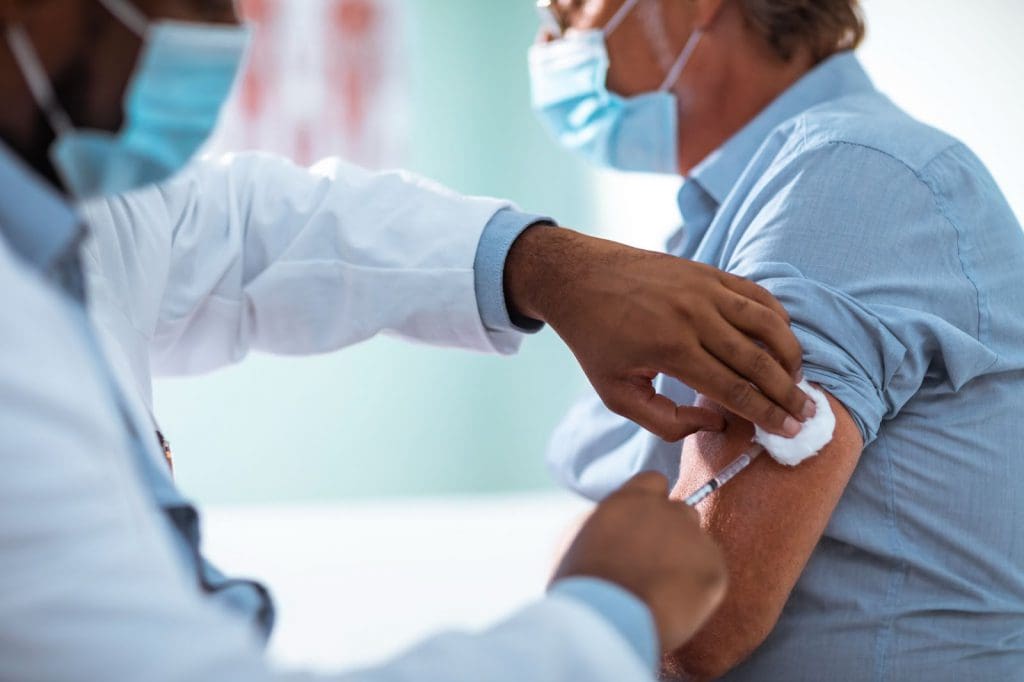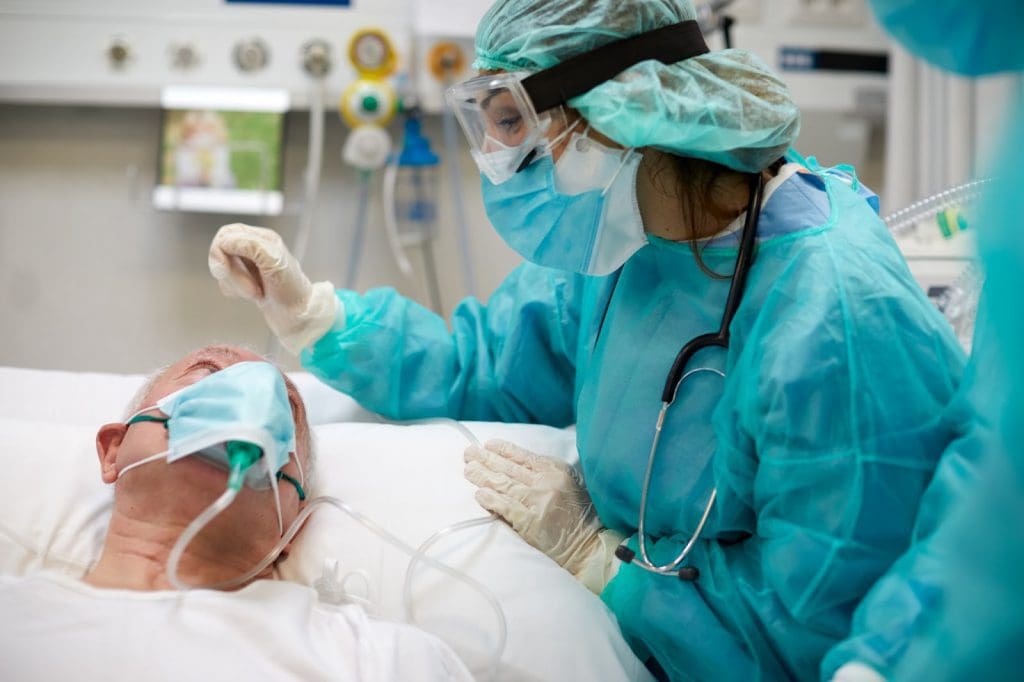
It’s been the lead news story across the world for going on two years, and with the Delta and new Omicron variants continuing to wreak global havoc, the COVID-19 pandemic promises to be in our lives for some time yet.
So, if you do happen to catch SARS-CoV-2, or COVID-19 as it’s better known, what cures or treatments are available to you?
Research into antiviral compounds has been taking place virtually non-stop since the onset of the pandemic, but there are also a few notable substances that have been shown to have potent effects against COVID-19.
In this four-part blog series, we’ll take a look at some of the current COVID treatments, DMTs, and antivirals including Molnupiravir, Paxlovid, and thapsigargin. We’ll also examine some other much-publicised treatments (such as hydroxychloroquine and Ivermectin) and discuss why they may not be quite so effective against COVID-19.

COVID-19 treatments more or less focus on a three-pronged approach: vaccination, antivirals and disease-modifying therapies/treatments. The exact treatment regime and medications or methods used are largely dependent on the patient, their existing health conditions and medications, age or sex, and the stage of the disease they are at. Generally, the following treatment regime applies in many instances.
The first line of defence against COVID is vaccination. It remains the most effective method of preventing COVID infections, and if you do happen to catch it, a prior vaccination will prime your body to fight it so you are much less likely to end up severely ill or require hospitalisation.

As is the case when fighting most illnesses, making sure you eat a healthy and nutritious diet, maintaining a healthy weight, managing any chronic health conditions you have, and practicing good hygiene habits (such as regular hand washing) can help prevent you from contracting COVID-19, or at least minimise the risk of severe symptoms if you do catch it.
While many people with COVID-19 experience mild symptoms and fight off the disease unaided, some may experience more severe symptoms and require additional treatment support. Initial treatment for most adults is rest and anti-inflammatories such as Ibuprofen, while the monitoring of oxygen levels using a pulse oximeter may also be recommended. Antibiotics would not be given as they are not effective against viruses such as SARS-CoV-2, however they may be administered where a secondary respiratory infection such as pneumonia has occurred.
For adults with existing conditions that may increase the severity of COVID (such as certain heart, kidney, lung, or liver irregularities, obesity, those who are immunocompromised, or of an advanced age), disease-modifying treatments (DMTs) such as Sotrovimab, Budesonide, Casirivimab, or Imdevimab may be offered. These are typically administered within 5 to 7 days of disease onset.
For moderate to critical cases of COVID-19 which typically require hospitalisation, antivirals such as Remdesivir may be administered. If the patient requires ventilation or similar oxygen therapy, corticosteroids such as Dexamethasone are usually prescribed. Once again, DMTs such as Sotrovimab, Baricitinib, Tocilizumab, Casirivimab or Imdevimab might be administered to a patient with severe COVID-19 depending on their disease progression, symptoms, and other treatments administered.

There is a long list of treatments that are not ideal for COVID, or which may not be recommended in all circumstances or until further evidence of effectiveness is shown. These include a range of antibiotics, certain DMTs/DMARDs used for other autoimmune or rheumatic conditions, anti-parasitic medications and more. It’s vital to follow the advice of your treating healthcare professional, as the best treatment for you is the one that best suits your current health status and the stage of disease progression you are at.
In our next article, we take a look at DMTs, and why some of these are being used to treat COVID-19. In parts 3 and 4, we’ll investigate antivirals, as well as some of the other treatments currently being trialled and publicised.
If you have any questions about COVID-19, pathogens, or vaccines, or would like advice on safely handling hazardous substances, please contact the Chemwatch team today. Our friendly and experienced staff draw on years of experience to offer the latest industry advice on how to stay safe and comply with Health and Safety regulations.
Sources: